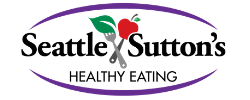Are Dietary Supplements Safe? Here’s How to Tell
Many people take supplements to improve their health. While some supplements have known benefits and safety, other supplements are not well-studied and may be downright dangerous. Did you know that supplements are not required to be approved for safety and effectiveness before they hit store shelves? Kind of scary, huh? So, how do we keep ourselves safe if we choose to take a dietary supplement?
Looking for a third party seal on your supplement bottles is a great first step in finding a good quality supplement. Consumer Labs, NSF International, and U.S. Pharmacopeia (USP) are each third-party groups that take consumer safety very seriously. If you see a seal from any of these companies, you can be assured the supplement has met their strict safety standards. A verified seal on a dietary supplement guarantees that the supplement:
1. Contains the ingredients listed on the label, in the declared potency and amounts
2. Does not contain harmful levels of specified contaminants
3. Breaks down and releases ingredients into the body within a specified amount of time
4. Has been made according to current U.S. Food and Drug Administration (FDA) good manufacturing practices
Below is the picture of the seals to look for your supplement bottles.

A well-planned, balanced diet is the best way to get the vitamins, minerals, and nutrients your body needs. If you need to take a supplement in addition to a healthy diet, it is wise to check with your physician, dietitian, or pharmacist before starting any supplements as many can interact with prescription and over-the-counter medications.
Some good sites for supplement information include:
1. U.S. Food & Drug Administration
2. National Center For Complimentary and Integrative Health
3. National Institutes of Health

Interested in eating healthy? Hungry for more?
